In a world where a mere sip of tea unveils centuries of tradition and craftsmanship, the art of authentic Japanese tea tasting beckons. As the delicate aromas of sencha, matcha, and gyokuro dance through the air, tantalizing the senses, one can’t help but wonder about the stories steeped within each leaf.
From the rolling hills of Uji to the bustling markets of Kyoto, the journey of Japanese tea is a tapestry of culture and flavor waiting to be unraveled. So, prepare your palate for a voyage through the nuanced world of Japanese tea, where each cup holds a tale worth savoring.
Key Points
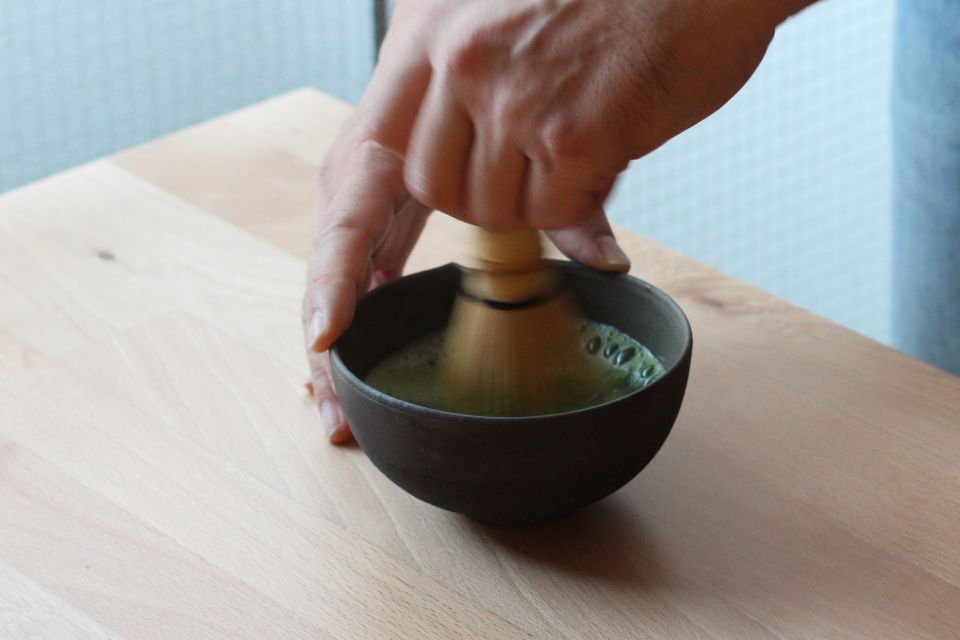
- Experience the art of Japanese tea tasting with sencha, matcha, and gyokuro varieties in a serene setting.
- Learn about the diverse Japanese tea selection, origins, and brewing techniques that enhance flavors.
- Understand the quality grading, regional origins, and meticulous craftsmanship behind popular Japanese teas.
- Explore the art of pairing Japanese teas with traditional sweets to elevate the overall tasting experience.
Tea Tasting Experience in Tokyo
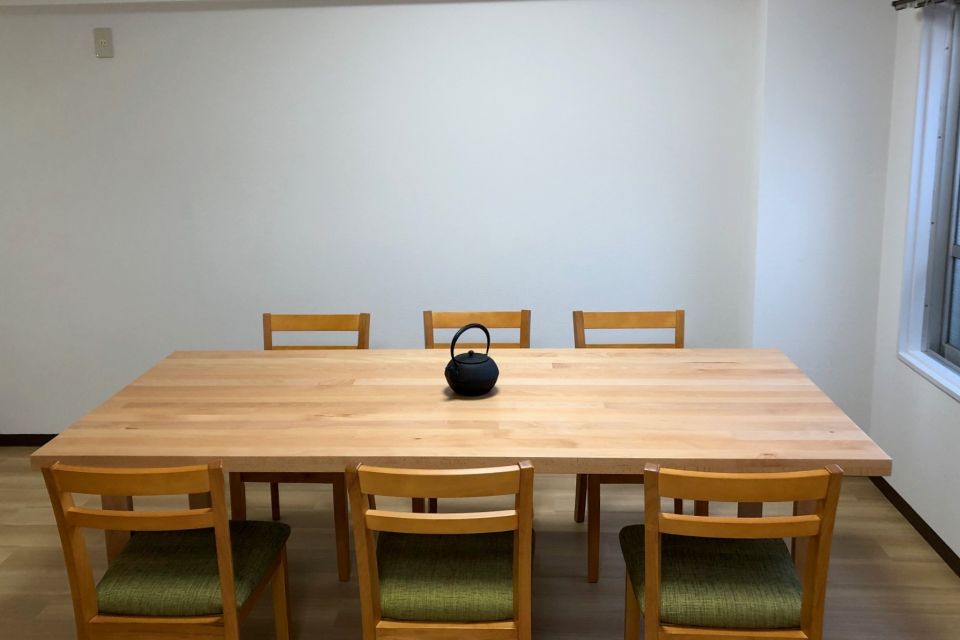
Set out on a captivating journey through the flavors and traditions of Japanese tea at the enchanting tea tasting experience in Tokyo. Enjoy the art of the tea ceremony, a ritual that embodies grace, respect, and tranquility. This culture offers a window into Japan’s rich heritage and deep-rooted traditions surrounding tea.
Participants are welcomed into a small group setting limited to four individuals, ensuring an intimate and personalized experience. Engage your senses as you savor the deep umami flavors of authentic Japanese tea, including sencha green tea, matcha green tea powder, and gyokuro green tea.
Discover the nuances among teas and their stories, while enjoying a serene and extremely relaxing tea tasting session in downtown Tokyo.
You can also read our reviews of more tours and experiences in Tokyo.
Tea Selection and Background Stories
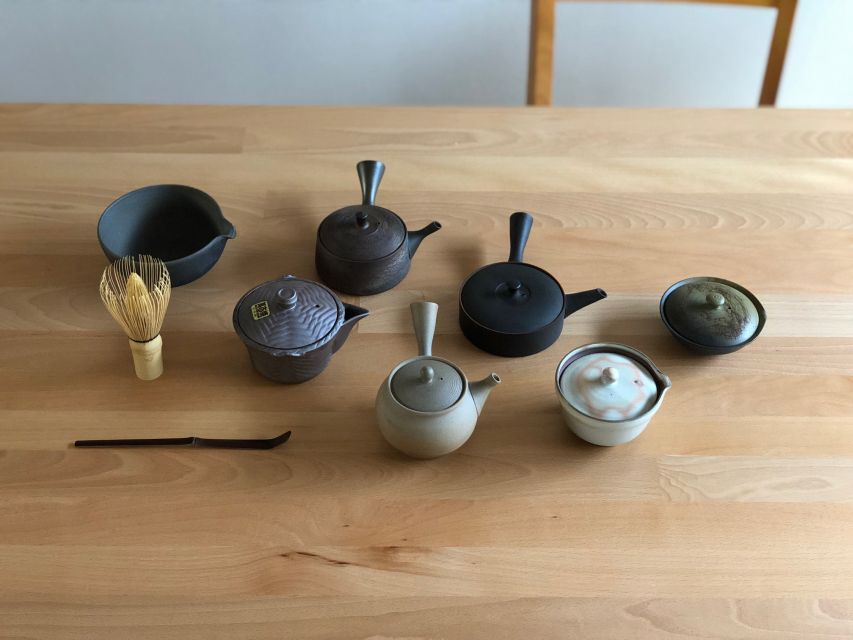
Participants in the enchanting tea tasting experience in Tokyo are introduced to a diverse selection of Japanese teas, each with its own captivating background story. The tea origins are carefully explained, tracing back to traditional family farms where cultivation practices have been perfected over generations.
As participants explore the world of Japanese tea, they uncover the unique brewing techniques that enhance the flavors and aromas of sencha, matcha, and gyokuro. These brewing methods, passed down through centuries, play a crucial role in bringing out the best qualities of each tea variety.
Understanding the intricate relationship between tea leaves, water temperature, and steeping time adds a layer of appreciation to the tea tasting experience, elevating it from a simple activity to a sensory journey through Japan’s rich tea culture.
Japanese Tea Varieties Discussed
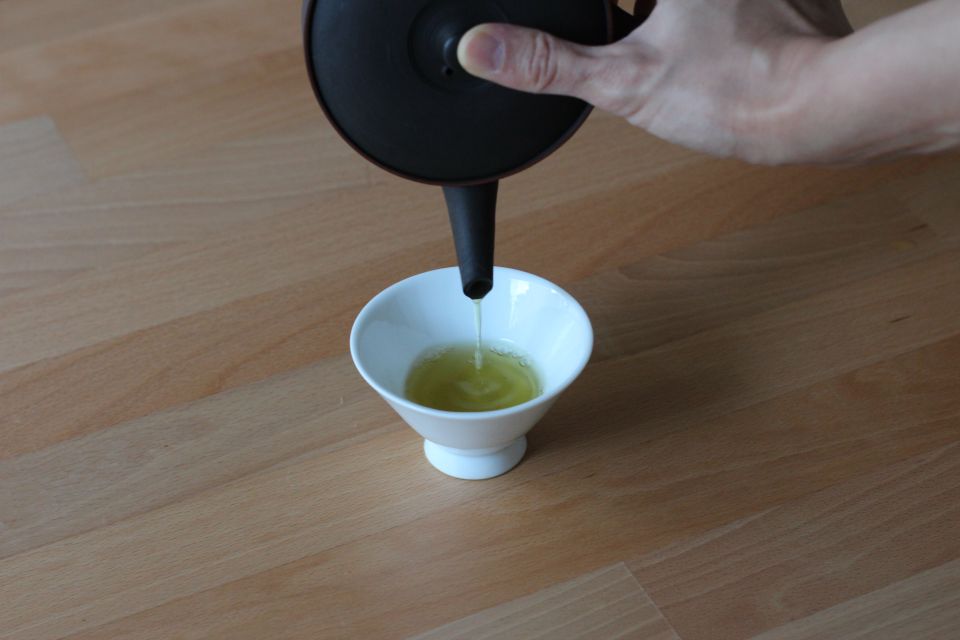
An exploration of the Japanese tea varieties reveals a diverse range of flavors and aromas that captivate tea enthusiasts. Sencha, a popular green tea, originated in Japan and is known for its grassy and slightly sweet taste.
Matcha, used in traditional Japanese tea ceremonies, offers a vibrant green color and a rich, umami flavor. Gyokuro, a shade-grown tea, boasts a sweet, mellow taste with a luxurious aroma.
Each of these teas has its unique characteristics, making them sought after by tea lovers worldwide. So, whether one prefers the grassy notes of sencha, the ceremonial elegance of matcha, or the refined taste of gyokuro, Japanese tea varieties have something special to offer for every palate.
Quality Grading and Origins
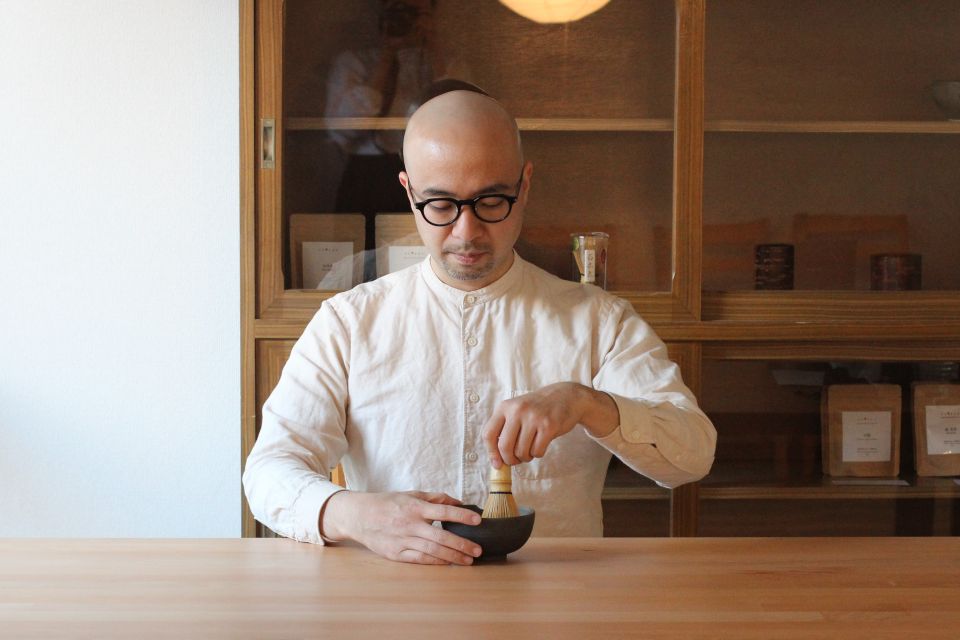
Exploring the realm of Japanese tea quality grading and origins unveils a fascinating journey into the intricate world of tea cultivation, showcasing the meticulous craftsmanship and regional distinctions that define each unique brew.
In the origins exploration, tea enthusiasts can trace the roots of their favorite teas back to specific regions in Japan known for their distinct terroir, which greatly influences the flavor profile of each tea variety. From the lush fields of Uji to the misty mountains of Shizuoka, the geographical nuances play a significant role in shaping the characteristics of sencha, matcha, and gyokuro.
Through flavor comparison, one can appreciate how these teas offer a spectrum of tastes ranging from grassy and vegetal notes in sencha to the rich, umami-packed intensity of gyokuro.
Pairing Tea With Japanese Sweets
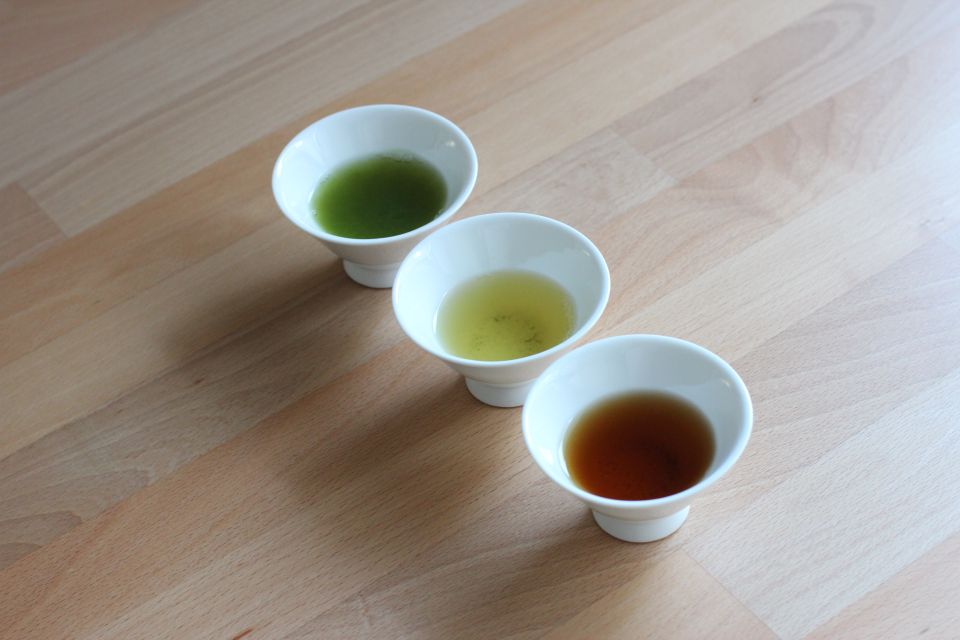
Pairing Japanese tea with traditional sweets creates a harmonious blend of flavors that enhances the overall tea tasting experience. Japanese sweets are known for their delicate and subtle flavors that complement the nuances of different teas. When enjoying a tea tasting session, it’s essential to choose the right sweets to enhance the flavor profiles of the teas being sampled.
Here are some popular Japanese sweets that pair well with tea:
-
Wagashi: These traditional Japanese sweets are often made from mochi, anko (sweet red bean paste), and fruits. They offer a perfect balance of sweetness to offset the bitterness of green teas like sencha.
-
Dorayaki: A sweet pancake filled with anko, dorayaki pairs wonderfully with matcha, enhancing its rich and slightly bitter taste.
-
Yokan: A jellied dessert made of red bean paste, agar, and sugar, yokan’s subtle sweetness complements the umami flavor of gyokuro tea.
-
Monaka: A crispy wafer filled with sweetened red bean paste, monaka provides a delightful crunch that contrasts well with the smoothness of matcha.
- Shinjuku: Bar Hopping Night Tour at Japanese Izakaya
- Tokyo Food Tour: The Past, Present and Future 11 Tastings
- Tokyo: Famous Spots and Hidden Gems of the Capital
- Mt. Fuji and Hakone: Full Day Private Tour W English Guide
- From Tokyo: Nikko World Heritage Private Tour by Car and Van
- Tokyo: Shibuya Highlights Customized Walking Tour
Small Group Tea Tasting Benefits
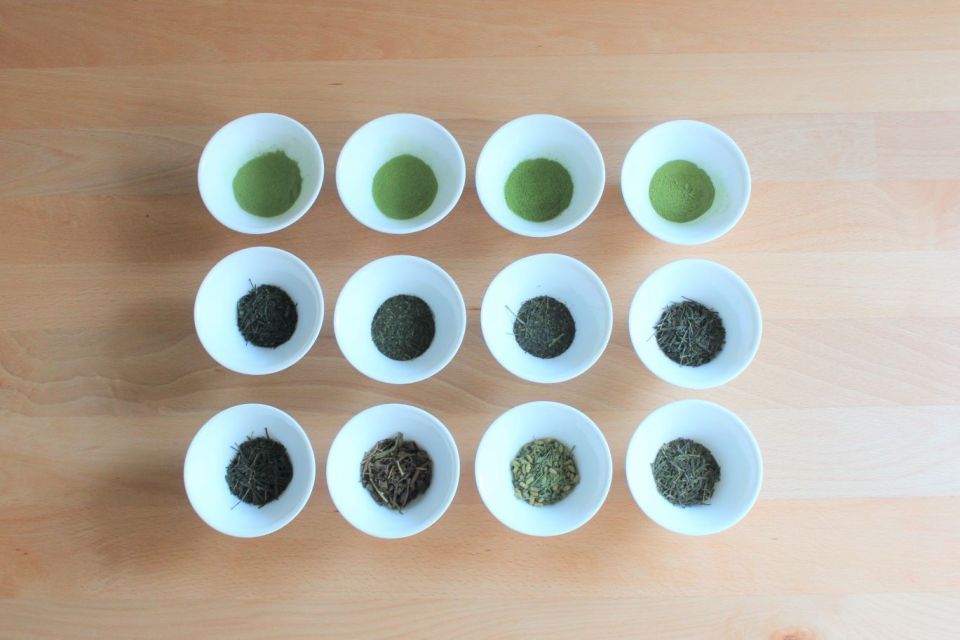
Discover the unique advantages of participating in a small group tea tasting session, where intimacy and personalized attention enhance the overall tea experience. In a small group setting limited to 4 participants, group dynamics play a crucial role in creating a welcoming environment for sharing tea preferences and learning from one another. This setting allows for culture as participants engage in tasting techniques guided by a knowledgeable tea master. The intimate nature of the group fosters a sense of community and camaraderie, making the experience more memorable and enjoyable for all. Through discussions and shared experiences, participants can deepen their understanding of Japanese tea traditions and elevate their appreciation for the intricacies of each tea variety.
| Group Dynamics | Tea Preferences | Cultural Immersion |
|---|---|---|
| Encourages sharing | Personalized attention | Engage in tasting techniques |
| Builds camaraderie | Intimate setting | Deepens understanding of traditions |
Traveler Reviews and Feedback
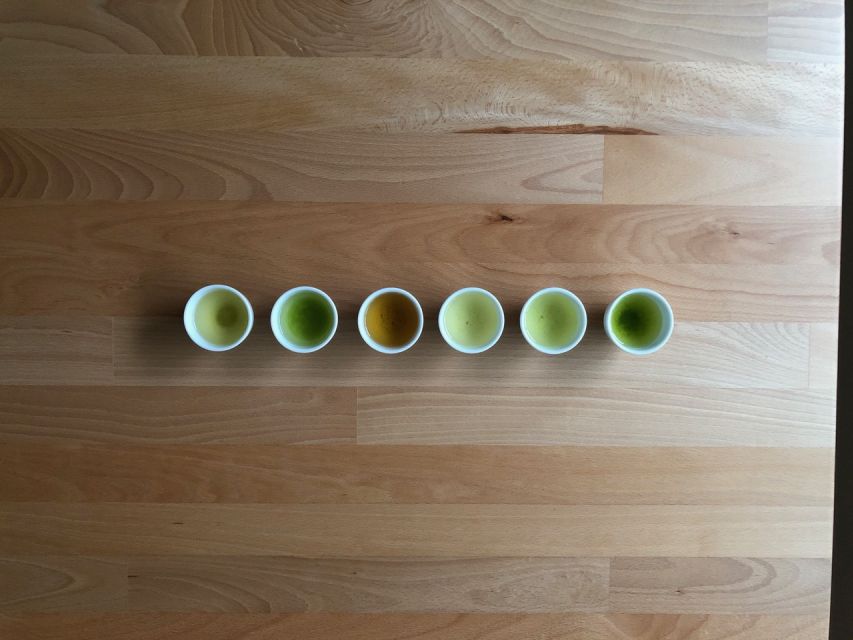
Travelers who’ve participated in the Japanese tea tasting experience have praised the intimate setting and high-quality tea selection provided during the session. Here are some insights from their reviews:
-
Cultural Insights: Visitors appreciated learning about the cultural significance of different teas and traditional tea ceremony techniques.
-
Flavor Profiles: They enjoyed the diverse range of flavors, from the grassy notes of sencha to the rich umami of gyokuro.
-
Brewing Methods: Travelers found it informative to discover the specific brewing methods for each type of tea to bring out the best flavors.
-
Overall Satisfaction: Positive feedback highlighted the relaxing ambiance, knowledgeable host, and the opportunity to taste premium teas sourced from family farms.
Booking Information and Details
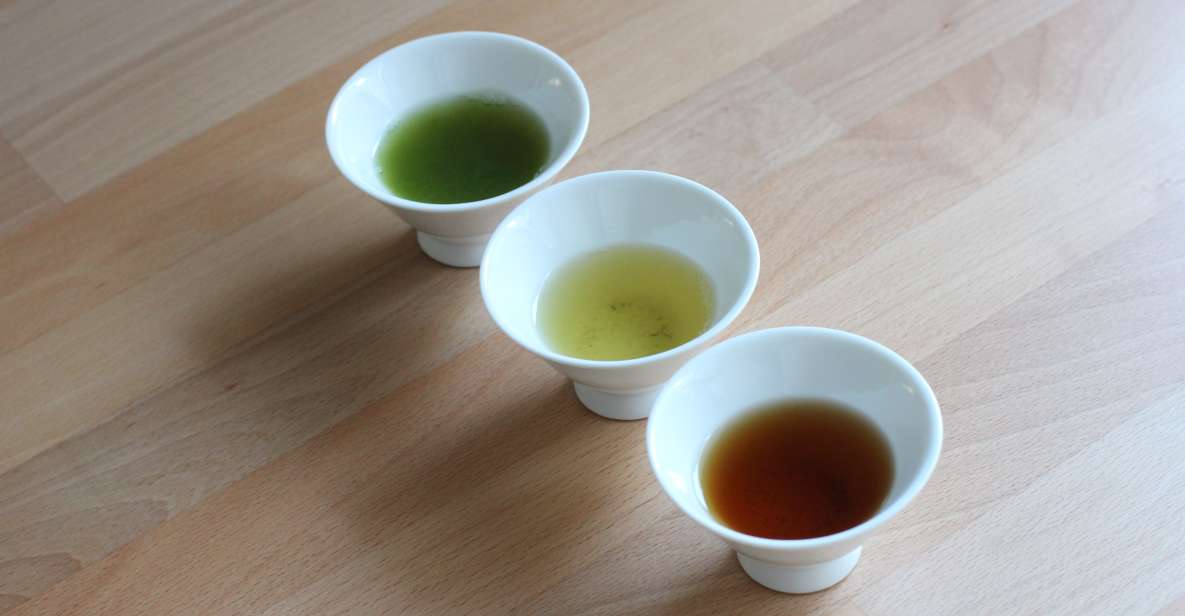
Visitors can secure their spot for the Japanese tea tasting experience by checking availability for specific starting times and reserving now for a flexible payment option. The booking process offers the convenience of reserving a slot without immediate payment, allowing for greater flexibility. Free cancellation is available up to 24 hours in advance for ease of mind. The payment options are designed to cater to different preferences, ensuring a hassle-free booking experience.
With a duration of 1.5 hours and limited to just 4 participants in a small group setting, participants can expect an intimate and personalized experience. By following the simple booking instructions, tea enthusiasts can guarantee their spot for a unique and immersive Japanese tea tasting journey.
Common questions
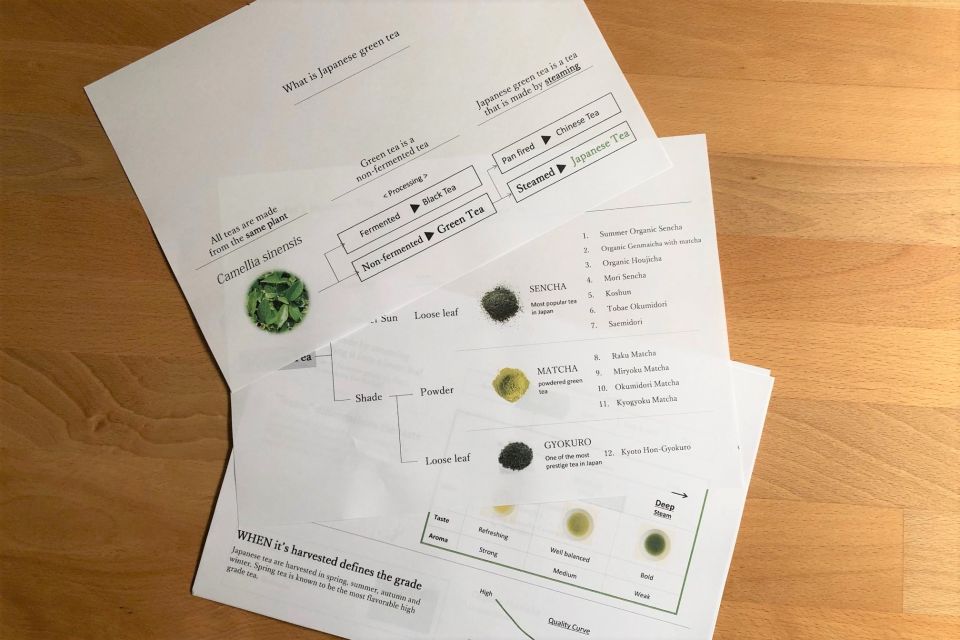
What Is the Best Way to Store Japanese Tea to Maintain Its Freshness?
To maintain Japanese tea’s freshness, it’s vital to store it properly in airtight tea containers. This method helps preserve the tea’s flavors and aromas. By sealing it away from air and light, one can enjoy its full essence.
Are There Any Specific Health Benefits Associated With the Different Types of Japanese Tea?
When it comes to Japanese tea, each type offers unique health benefits. Sencha aids in digestion, matcha boosts energy and focus, while gyokuro is rich in antioxidants. Brewing techniques affect these benefits, so proper preparation enhances their effects.
Can Participants Purchase the Teas Sampled During the Tasting Session?
Participants can purchase the sampled teas during the tasting session. The tea availability allows them to bring home their favorites. The teas are sourced from family farms, reflecting traditional production methods and ensuring a high-quality experience for tea enthusiasts.
Are There Any Cultural Etiquette or Customs to Be Aware of During a Japanese Tea Tasting?
When attending a Japanese tea tasting, participants should be mindful of cultural customs. Understanding tea ceremony etiquette and Japanese traditions enhances the experience. Respect for the ritual of tea preparation and consumption is key for a meaningful interaction.
Is There a Recommended Time of Day to Enjoy Japanese Tea for Optimal Flavor?
For optimal flavor, Japanese tea can be enjoyed in the morning for a refreshing start or in the evening for a soothing experience. The time of day can affect flavor variations, highlighting different brewing techniques and enhancing the overall tea tasting journey.
Final Words
Enjoy the world of authentic Japanese tea with a unique tasting experience in downtown Tokyo. Explore the rich flavors and stories behind sencha, matcha, and gyokuro teas sourced from family farms.
Discover the nuances of each tea variety and enjoy the meditative experience of a traditional tea ceremony. Sip, savor, and learn about the art of Japanese tea in a small group setting limited to four individuals.
Book your tea tasting session now for a peaceful and unforgettable experience.
More Food & Drink Experiences in Tokyo
- Tokyo : Asakusa Fake Japanese Food Making and Shopping
- Akihabara Anime& Gaming Food Tour
- Guided Tour of Izakaya With Food and Drinks
- Yanaka & Nezu: Explore Retro Japan Through Food and Culture
- Sake Tasting With a Professional International Sake Tutor!
- Shinjuku Golden Gai Walking Food Tour With A Master Guide
More Tour Reviews in Tokyo
- Tokyo: Guided Street Go-Karting Tour in Tokyo Bay
- Tokyo : Asakusa Fake Japanese Food Making and Shopping
- Private Charter Car One Day Trip in Near Tokyo!
- Tokyo : Onigiri Making and Combini Onigiri Eating Comparison
- Tokyo Shibuya Tour of Japanese Anime Stores With Ramen Lunch
- Haneda Airport: 1-Way Shared Shuttle Transfer
Not for you? Here's more nearby things to do in Tokyo we have reviewed
- Tokyo: Guided Street Go-Karting Tour in Tokyo Bay
- Tokyo : Asakusa Fake Japanese Food Making and Shopping
- Private Charter Car One Day Trip in Near Tokyo!
- Tokyo : Onigiri Making and Combini Onigiri Eating Comparison
- Tokyo Shibuya Tour of Japanese Anime Stores With Ramen Lunch
- Haneda Airport: 1-Way Shared Shuttle Transfer
- Tokyo Pub Crawl
- Akihabara Anime& Gaming Food Tour
- Tokyo: Narita International Airport T3 Mobile WiFi Rental
- Tokyo: Asakusa Guided Tour With Tokyo Skytree Entry Tickets
- Express Bus for Narita Airport, Tokyo Station & Karuizawa
- Sushi Making Class in English With Friendly Chef in Tokyo
